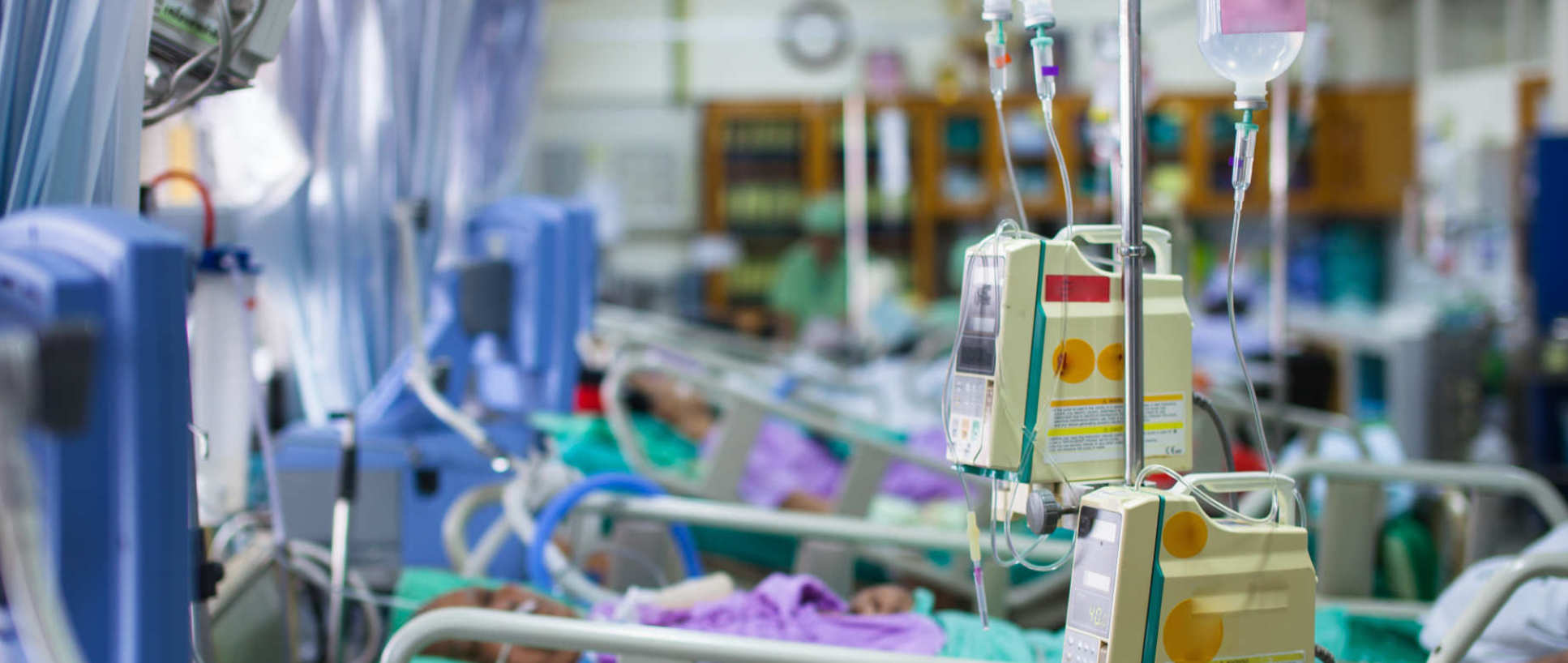BibTex format
@article{Mehta:2013:10.1186/cc12789,
author = {Mehta, S and Granton, J and Gordon, AC and Cook, DJ and Lapinsky, S and Newton, G and Bandayrel, K and Little, A and Siau, C and Ayers, D and Singer, J and Lee, TCK and Walley, KR and Storms, M and Cooper, JD and Holmes, CL and Hebert, P and Presneill, J and Russell, JA},
doi = {10.1186/cc12789},
journal = {Critical Care},
title = {Cardiac ischemia in patients with septic shock randomized to vasopressin or norepinephrine},
url = {http://dx.doi.org/10.1186/cc12789},
volume = {17},
year = {2013}
}
RIS format (EndNote, RefMan)
TY - JOUR
AB - Introduction: Cardiac troponins are sensitive and specific biomarkers of myocardial necrosis. We evaluated troponin, CK, and ECG abnormalities in patients with septic shock; and compared the effect of vasopressin (VP) vs norepinephrine (NE) on troponin, CK, and ECGs.Methods: This was a prospective substudy of a randomized trial. Adults with septic shock randomly received a blinded infusion of low-dose VP (0.01-0.03 U/min) or NE (5-15 μg/min) in addition to open-label vasopressors, titrated to maintain a mean blood pressure of 65-75 mmHg. Troponin I/T, CK, and CKMB were measured and 12-lead ECGs were recorded prior to study drug, and 6 hours, 2 days and 4 days after study drug initiation. Two physician readers, blinded to patient data and drug, independently interpreted ECGs.Results: We enrolled 121 patients [median age 63.9 years (IQR 51.1,75.3), mean APACHE II 28.6 (SD 7.7)]: 65 in VP group and 56 in NE group. At the 4 timepoints, 26%, 36%, 32% and 21% of patients had troponin elevations, respectively. Baseline characteristics and outcomes were similar between patients with positive versus negative troponin levels. Troponin and CK levels, and rates of ischemic ECG changes were similar in the VP and NE groups. In multivariable analysis only APACHE II was associated with 28-day mortality (OR 1.07, 95% CI 1.01-1.14, p=0.033).Conclusions: Troponin elevation is common in adults with septic shock. We observed no significant differences in troponin, CK, and ECGs in patients treated with vasopressin and norepinephrine. Troponin elevation was not an independent predictor of mortality.Trial registration: Controlled-trials.com ISRCTN94845869.
AU - Mehta,S
AU - Granton,J
AU - Gordon,AC
AU - Cook,DJ
AU - Lapinsky,S
AU - Newton,G
AU - Bandayrel,K
AU - Little,A
AU - Siau,C
AU - Ayers,D
AU - Singer,J
AU - Lee,TCK
AU - Walley,KR
AU - Storms,M
AU - Cooper,JD
AU - Holmes,CL
AU - Hebert,P
AU - Presneill,J
AU - Russell,JA
DO - 10.1186/cc12789
PY - 2013///
SN - 1364-8535
TI - Cardiac ischemia in patients with septic shock randomized to vasopressin or norepinephrine
T2 - Critical Care
UR - http://dx.doi.org/10.1186/cc12789
UR - http://ccforum.com/content/17/3/R117
UR - http://hdl.handle.net/10044/1/11665
VL - 17
ER -



 Critical care involves the care of the sickest patients in the hospital. Critically ill patients have usually been through a significant insult to their body (such as trauma, infection, burn) and have developed organ failure and require life-support. Critical Care is the largest theme bringing together clinicians and scientists from diverse backgrounds and includes collaborative research from hospitals throughout north-west London. Investigations range from evaluating biological mechanisms of organ failure through to the development of innovative technologies which allow the short-term and long-term support and recovery of organs.
Critical care involves the care of the sickest patients in the hospital. Critically ill patients have usually been through a significant insult to their body (such as trauma, infection, burn) and have developed organ failure and require life-support. Critical Care is the largest theme bringing together clinicians and scientists from diverse backgrounds and includes collaborative research from hospitals throughout north-west London. Investigations range from evaluating biological mechanisms of organ failure through to the development of innovative technologies which allow the short-term and long-term support and recovery of organs.